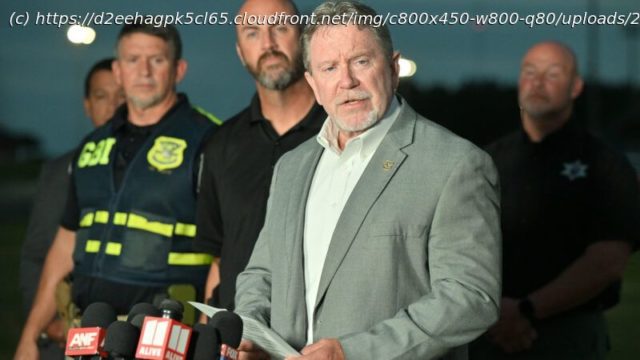Colin Gray, the boy’s father, had been charged with two counts of second-degree murder and several other felonies.
a 14-year-old boy shot and killed two students and two teachers at Apalachee High School in Winder, Georgia. On Thursday night, the Georgia Bureau of Investigation announced that Colin Gray, the boy’s father, had been charged with two counts of second-degree murder and several other felonies.
Although the details of Colin Gray’s conduct are not yet completely clear, the gist of the case is that he negligently gave his son Colt, a freshman at the high school, access to the rifle he used in the shooting. Since Georgia does not have a law that explicitly treats such negligence as a crime, prosecutors are stretching other laws to cover Colin Gray’s alleged failures as a parent.
Earlier this year, Michigan prosecutors used a similar strategy to convict the parents of the teenager who killed four students at Oxford High School in November 2021. Last February, a jury convicted Jennifer Crumbley on four counts of involuntary manslaughter. Her husband, James Crumbley, who was tried separately, was convicted of the same charges in March. The following month, they received sentences of 10 to 15 years in prison.
At the time of the Oxford High School shooting, Michigan did not have a child access prevention (CAP) law, which makes it a crime to negligently allow minors unsupervised access to firearms. Since Michigan legislators «refused to criminalize the conduct in which the Crumbley parents engaged», former federal prosecutor Andrew McCarthy argued after they were charged, prosecutors were «attempting in the heat of the moment to criminalize the conduct themselves.» The extent of the Crumbleys’ culpability in their son’s crimes was unclear, and the law under which they were charged did not obviously apply to their conduct. The Georgia case raises similar issues.
Even if Colin Gray shares some of the moral responsibility for his son’s actions, holding him criminally liable requires showing that his conduct fits the elements of a specific offense. At this point, that seems doubtful.
Although Georgia does not have a full-fledged CAP law, it does impose criminal penalties on adults who provide firearms to minors in certain circumstances. But the law applies only to handguns. Under that statute, «any person» who «intentionally, knowingly, or recklessly…sell[s] or furnish[es] a pistol or revolver» to someone younger than 18 is guilty of a felony punishable by three to five years in prison. That provision does not apply to a parent or guardian who lets a minor possess a handgun for lawful purposes such as hunting, shooting competitions, and firearms training unless the parent or guardian «is aware of a substantial risk» that the minor «will use a pistol or revolver to commit a felony offense» and does not «make reasonable efforts to prevent commission of the offense.»
If Colt Gray had used a handgun in the attack on Apalachee High School, that law might have covered his father’s conduct, depending on exactly what he did or failed to do. But since the law does not apply to rifles, this charge was not an option. Prosecutors therefore are relying on statutes that are less obviously relevant.






